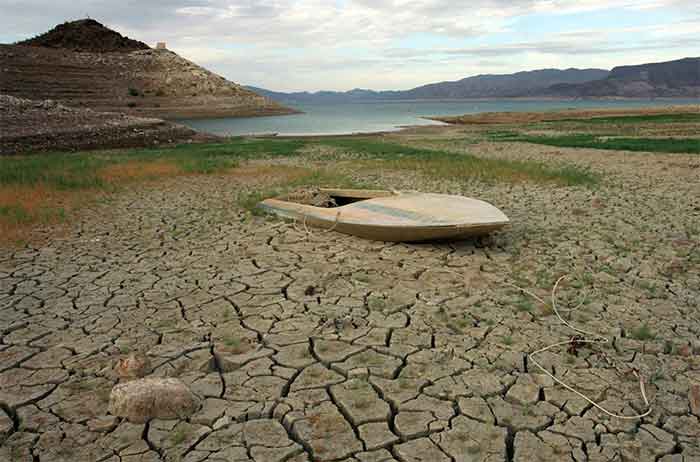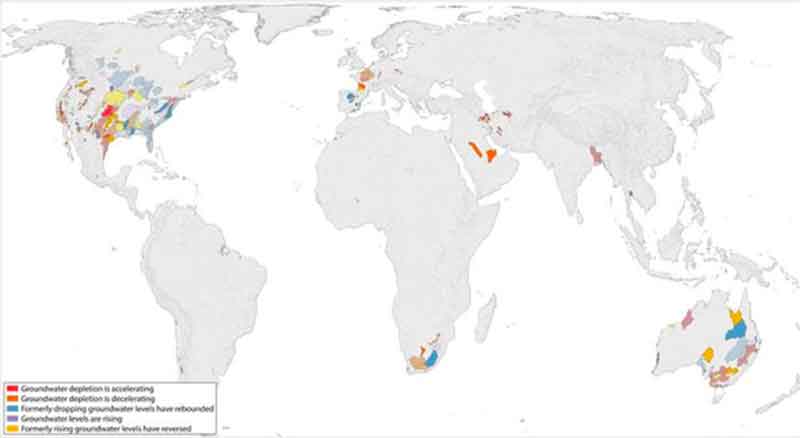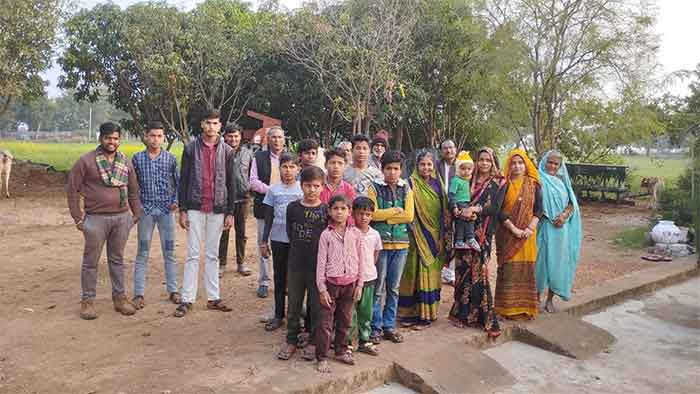
The union government has stated that it will be giving very high priority to its schemes to provide tap water to all homes. It has been claimed that this work has been progressing well in the middle of all the recent problems at record levels. In addition the government has stated that this will be supported by increase in adequate water conservation as well.
So far so good. No one will deny that all this is very welcome. One of the most important development priorities without any doubt is to ensure the access of essential norms of water supply to all people. However the experience of recent years has been that several factors led by ecological ruin and injustice in various forms are depriving an increasing number of people of access to essential supplies of clean water.
To what extent will the recent initiatives of the government improve the situation in the near future? The government has stated that it is committing adequate funds even beyond this financial year. One hopes that there will be no cuts given the overall difficult fiscal situation, as has been the case with several important development schemes in recent times. But this is by no means the only concern.
In the middle of existing power realities, there are increasing possibilities of some very wealthy and powerful interests grabbing the most essential basis of life from a large number of people and animals. This is a factor that can become the cause of increasing water stress for people even in the middle of availability of increasing funds for water schemes. In fact some of the water schemes may have the narrow and distorted aim of facilitating this. In the case of several dam projects it has been seen that water-use gets diverted to urban, luxury ,industrial uses from rural, essential, priority uses. The situation gets even more serious if we look not just at immediate needs but the sustainability of water access for ordinary people .
Hence even though the official story is one of more and more people and villages being covered by water supply schemes, the reality, or at least a very important part of reality, is one of thousands of water-grabs taking place in various forms daily which increase the water scarcity for ordinary people, particularly the poorer sections among them. It is by setting in position systems to prevent such routine water-grabs that the water rights of the people can be protected.
On the other hand the key to success is in ensuring distribution of water based on justice and equality and secondly, giving high emphasis not just to water conservation seen in isolation but in addition to ecological protection at a much wider level.
The overall approach should not be to look at water sector in isolation but to emphasise ecological protection in all sectors, be it agriculture or other aspects of rural development, infrastructure or urban development, industry or mining. It is only by taking such an integrated view that water sources can be saved, water table decline can be checked and water pollution can be reduced significantly. It is the neglect of this holistic approach which has led to the depletion and pollution of basic water sources.
More and more areas have been reporting specific contaminations such as those relating to excess of fluoride and arsenic and this is a cause for serious concern, even more for future than now.
Salt water ingress in a wide area is another increasing problem. Many Himalayan and other hilly springs have been vanishing at a fast pace, or getting badly depleted or polluted. The role of man-made factors and ecologically destructive policies in the case of most of these increasing difficulties is well-known.
What should worry us even more is that many highly disruptive river projects are on the list of being implemented soon and these can play havoc with our basic water resources and their proper utilization for the growing needs of an increasing population. What is worse, the government is seen to be very less receptive when such glaring mistakes are pointed out.
Hence while the government has been assuring us that the budget for water sector will increase, the worry remains that a huge portion of this will be spent on disruptive schemes or on schemes which divert water in ways that increasing inequalities and injustice in accessing water.
These should be matters of very high concern but at present the detailed precise mapping of problems and realistic, comprehensive, unbiased appraisal of steps taken so far is not available, nor is there a discernible desire to learn from past mistakes. There should be very realistic information available on those areas where water access is threatened by all these and similar problems, and this can be taken as an important first step.
Keeping in view the several water related stresses that are anyway likely to appear increasingly in these times of climate change, it is extremely important that man-made factors which threaten water-sources, including indiscriminate deforestation and mining, should be avoided.
There should be careful water audits of various industries and cropping systems. There should be a better appreciation of water costs of various products and consumption patterns. We cannot go on promoting water guzzling consumption patterns and then hope to sort out the water crisis. When the Economist reported some time back that a litre of wine requires one thousand litres of water, some expressed disbelief but it was revealed that if you follow the entire production cycle, this or something very close to may indeed be the case.
Water conservation and water harvesting projects are needed more , but with better care and planning. Learning from traditional systems and involving experience of local people , including women, is one obvious way of ensuring better success. Various communities who have lived and worked near water sources including rivers and tanks can be more helpful.
On the other hand , widespread corruption has been the biggest reason for not realizing the full potential of water conservation works. When the main planning is for the contractor and officials to make quick money, you cannot hope to get any good results. So there has to be a big effort to check the contractor and corruption dominated systems. Much better utilization of existing schemes, like the rural employment guarantee scheme, can be secured by cutting down heavily on corruption and ensuring better planning with people’s participation.
In order to find the funds for many more small-scale decentralized water conservation and water-harvesting projects in the hands of rural communities, several highly wasteful and ecologically destructive projects water projects with huge budgets should be scrapped and instead these funds should be allocated for small community water projects.
In a holistic vision of water adequate attention will be given also to meeting the water needs of all non-human life forms, including farm animals, stray animals, wild animals and birds, including migrating birds. The terrible tragedy of large-scale deaths of migrant birds in Sambhar lake in Rajasthan caused by callous neglect of an important lake should be an eye-opener and such tragedies should not be allowed to occur again.
At the level of social justice, there should be particular concern for meeting the water needs of weaker sections with special emphasis on Dalits and those other communities which were traditionally discriminated against in accessing common water sources.
There should be adequate budget overall for water sector, with special emphasis on meeting the water needs of the poor while at the same time avoiding all wasteful, dubious and ecologically harmful projects.
Bharat Dogra is a journalist and author. His recent books include Planet in Peril and Man Over Machine.
GET COUNTERCURRENTS DAILY NEWSLETTER STRAIGHT TO YOUR INBOX
















































